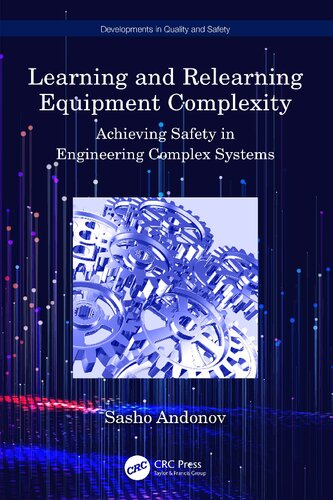

Most ebook files are in PDF format, so you can easily read them using various software such as Foxit Reader or directly on the Google Chrome browser.
Some ebook files are released by publishers in other formats such as .awz, .mobi, .epub, .fb2, etc. You may need to install specific software to read these formats on mobile/PC, such as Calibre.
Please read the tutorial at this link: https://ebookbell.com/faq
We offer FREE conversion to the popular formats you request; however, this may take some time. Therefore, right after payment, please email us, and we will try to provide the service as quickly as possible.
For some exceptional file formats or broken links (if any), please refrain from opening any disputes. Instead, email us first, and we will try to assist within a maximum of 6 hours.
EbookBell Team

4.4
62 reviewsWith industrial systems becoming ever more mechanized and reliant on advanced technology, the complexity of equipment, especially in risky industries, is increasing on a daily basis. A thorough understanding of operations and providing safety for these complex systems has become a firm requirement for many. This book offers the knowledge required by safety professionals to provide and maintain the safety of engineering complex systems.
Through a scientific and engineering approach to designing, implementing, operating, and maintaining complex systems, Learning and Relearning Equipment Complexity: Achieving Safety in Engineering Complex Systems details the need for more engineering and scientific knowledge to understand and maintain their safety. It gives clear explanations of reasons for a system’s complexity, based on control systems and non-linear dynamics. In addition, the book addresses the necessary changes in the approach and the procedures for the safety assessment of engineering complex systems. The reader will develop a thorough understanding of what complex systems are, why they are complex, and how they are utilized.
This book will appeal to any safety professional tasked with complex systems. This extends to professionals in risky industries such as aviation, nuclear power, chemicals, railway and transport, and pharmaceuticals.